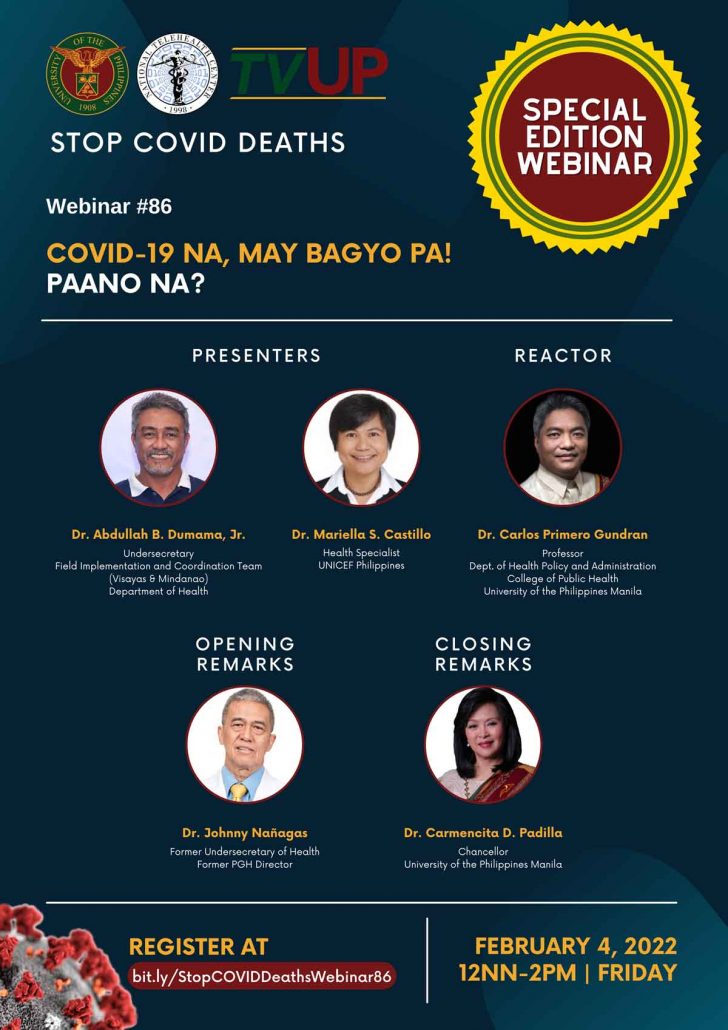
AT the beginning of the Omicron surge, on December 16-17 – the strongest typhoon of 2021 hit the Philippines causing the displacement of more than 9 million people and raising concerns about increased exposure to the virus in evacuation centers.
Typhoon Odette (Rai) hit the Philippines with winds at 160 mph. It started at Category 1 and shifted to speed for Category 5 in 24 hours – making it difficult to prepare for evacuations. The rapid intensification is attributed to climate change. Odette affected 11 of the 17 regions of the country, affecting 514 municipalities where 36 million homes were damaged, as compared to 1.1 million homes damaged during Typhoon Yolanda (Haiyan) in 2013.
By January 23, 2022 – it was estimated that more than 150,000 people still lived in evacuation centers, many communities still do not have water or electricity and 220 health facilities have been damaged, including 33 major hospitals. Vaccination programs were interrupted.
Recently, Omicron peaked and declined in the National Capital Region, but is believed to be gaining a foothold in other parts of the country.
The community public health needs of a huge part of the country: water and sanitation, mental health programs, child-friendly spaces, food and nutrition security, shelter, education, livelihood – is overwhelming — as the disaster has caused acute poverty on top of the chronic economic hardship inflicted by the COVID-19 pandemic.
What are the challenges for pandemic response in a country which is considered the third most disaster-prone country in the world, second only to Tonga and Vanuatu? How can our health workforce prepare for the double whammy of COVID-19 surges amidst super typhoons? What are the long-term preparations and adjustments needed to protect our health workers and health facilities from the perils of disease outbreak risks when there are massive evacuations?

In this episode of STOP COVID DEATHS last January 4, 2022, it was discussed the impact of Typhoon Odette with consideration of the risks of the COVID-19 Omicron surge on our health systems. The webinar opened by former PGH Director and DOH Undersecretary Dr. Juan Nañagas. Presentations will be made by DOH Undersecretary for Visayas and Mindanao, Dr. Abdullah Dumama, Jr. Meanwhile, Dr. Mariella Castillo of UNICEF will talk about displacement and its impact on children. Finally, Dr. Carlos Primero Gundran will discuss public health policy, preparedness and response implications for typhoons and infectious disease outbreaks. Synthesis and Closing Remarks will be delivered by the Chancellor of the University of the Philippines Manila, Dr. Carmencita D. Padilla. /PN







